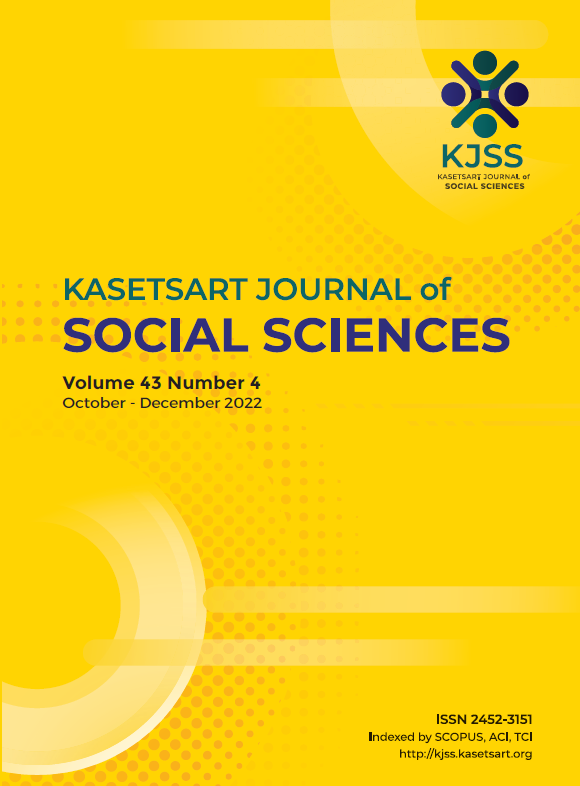Co-identifying processes of community resources: Participatory planning and use of a toolkit for community resilience in Bangkok Metropolitan Region (BMR)
Keywords:
community resilience, community resources, participatory planning, toolkit, urban crisesAbstract
In preparing to face unexpected urban crises triggered by climate change, economic depression and, more recently, the Covid-19 pandemic, the urban poor will benefit from understanding the concept of community resilience. One of the most important elements of resilient thinking is the management of community resources embedded within and around community areas. This paper discusses co-identifying processes of community resources through participatory planning in building community resilience by employing Participatory Action Research (PAR). Various planning methods and an interactive resilience toolkit were utilized under the Planning for Eco-cities and Climate-resilient Environments program (PEACE-BMR) to help identify community resources at both individual and community levels. The findings show the extent to which such resources can be concurrently recognized and identified by both researchers and participating community members of three case-study communities in Bangkok Metropolitan Region (BMR). The implications are that with participatory planning processes—as well as lessons learned from this paper—researchers, planners, and community residents can apply methods to co-identify community resources to help lowincome communities recognize, build and plan the necessary community resources to become more resilient in response to future crises.
Downloads
Published
How to Cite
Issue
Section
License

This work is licensed under a Creative Commons Attribution-NonCommercial-NoDerivatives 4.0 International License.
This is an open access article under the CC BY-NC-ND license http://creativecommons.org/licenses/by-nc-nd/4.0/










